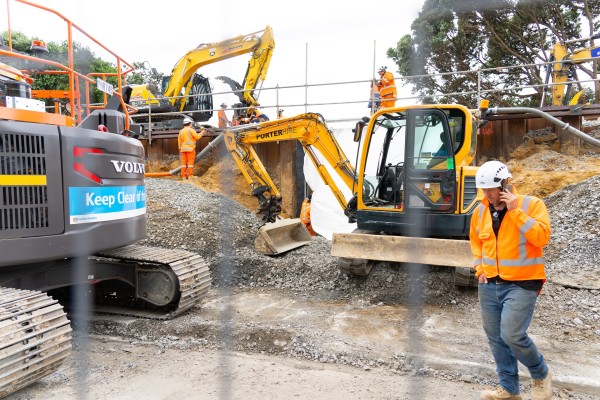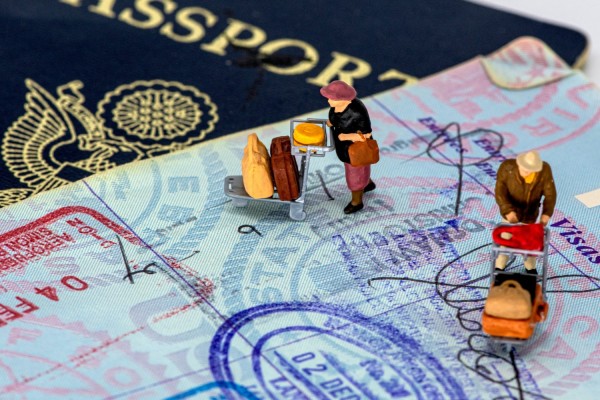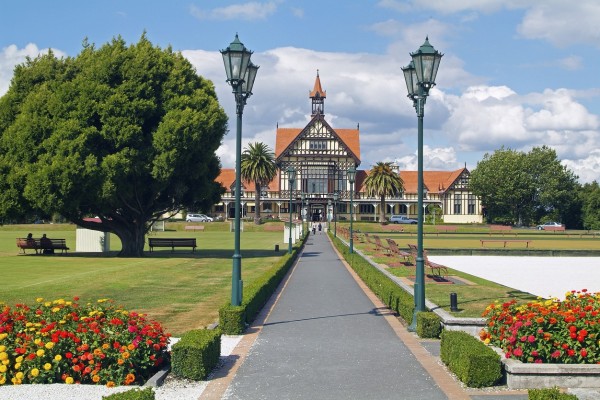How to find a job in New Zealand: A guide for newcomers

Whether you’re moving to New Zealand for a gap year or on a two-year visa, it’s a good idea to have some knowledge of the employment market before you arrive. This will make applying for a job and getting an interview much faster. From writing your resume to preparing for an interview, follow our guide for finding the right job for you in 2024.
What are the benefits of working in New Zealand?
New Zealand is a great place to live and work. One of the major benefits of working in Aotearoa is the work-life balance. Paid time off, paid sick leave, paid maternity leave. While some workplaces will offer benefits above the minimum standards, full-time employees can expect:
Annual Leave (Paid Holidays)
Typically, employees are entitled to a minimum of four weeks (20 days) of annual leave accrued over a year.
Sick Leave
Employees are entitled to paid sick leave for up to 10 days per year after the first six months of continuous employment and an additional five.
Employers must allow employees to accumulate up to 20 days of sick leave. Employees can carry over 10 days of unused sick leave per year.
Public Holidays
New Zealand observes 12 public holidays throughout the year.
Employees are entitled to take these days off with pay. Holidays that fall on a weekend are ‘Mondayised’, meaning that employees who don’t work weekends get a paid day off the following Monday.
Public holidays unique to New Zealand include:
-
ANZAC Day
-
Matariki
-
Regional Anniversary Days
-
Waitangi Day
Unpaid Parental Leave
Employees who have worked for at least 10 hours a week for six months are eligible for 26 weeks of unpaid parental leave and 26 weeks of government-funded parental leave payments.
Paid Parental Leave
Employees who have worked for at least 10 hours a week for 12 months are entitled to 52 weeks of unpaid parent leave and 26 weeks of government-funded parental leave payments.
Domestic Violence Leave
As of April 1, 2019, employees in New Zealand are entitled to up to 10 days of paid domestic violence leave per year.
KiwiSaver
Many employees in New Zealand are enrolled in the KiwiSaver retirement savings scheme, which includes employer contributions.
If you are enrolled in KiwiSaver, employees are entitled to a minimum 3% match from their employer.
Additional benefits that your job may offer

Health Insurance
For the most part, health insurance is not offered, as New Zealand has a government-funded public healthcare system.
Employee Training
Many workplaces will fund employee training to upskill their employees.
Flexible Working Arrangements
Many workplaces will offer working-from-home days or flexible working arrangements that make it easier for staff with children or family responsibilities to work according to their schedule.
What to know before applying for a job in New Zealand
There are a few things you should know before applying for a job in New Zealand that will make finding work slightly easier. The first is having an up-to-date curricular vitae (resume).
Here are some things you should include on your CV:
-
A New Zealand address: getting a job in New Zealand is much easier if you are already here. Providing a New Zealand address or local phone number will improve your chances of getting an interview.
-
Relevant experience: start by applying for jobs that are relevant to your experience. Switching industries is easier once you already have a job in New Zealand.
-
Language proficiency: if you are going for an office job, proficiency in written English is important.
-
Soft and hard skills: don’t forget to highlight your soft skills as well as your hard skills. Communication, teamwork and collaboration are all highly valued in New Zealand. Many employees hire for a combination of skills, personality and attitude.
-
Understanding of Te Tiriti o Waitangi (the Treaty of Waitangi): for some roles, showing an interest or basic understanding of Te Tiriti o Waitangi can help, especially if you are applying for government roles.
-
Writing a cover letter: many employers won’t hire employees who don’t write a cover letter. Take your time applying for job roles, and always submit a cover letter customised to each role. Your letter should address how your skills will help you complete the requirements set out in the job description.
-
There are many roles in regional New Zealand: if you’re flexible on where you can live, try applying for jobs in different locations. This is especially true for certain industries, like Health & Medical roles.
What types of roles are in demand in New Zealand?

The current roles are in high demand in New Zealand. The good news is, that even if you don’t have any experience, some of these roles don’t require any.
Trades and Services
Trades and Services are the most in-demand industries in New Zealand. The most in-demand jobs are for Automotive Trades, Technicians, Labourers, Electricians, Builders, Gardening & Landscapers, and Security Services. There are currently over 1,800 jobs available in the trades in New Zealand.
Healthcare & Medical
Medical jobs are highly in demand, especially within the regions. The job roles with the most openings right now include Dental, Medical Administration, General Practitioners, Aged Care Nursing, Community & Maternal Nursing, Physiotherapy, Counselling & Social Work. There are over 1,200 jobs currently available in the healthcare industry in New Zealand.
Manufacturing Transport & Logistics
There are currently over 1,500 jobs available in the Manufacturing, Transport and Logistics industries in New Zealand. Popular job openings include Assembly and Process Work, Machine Operators, Couriers and Drivers, Production, Planning and Scheduling, Warehousing, Storage and Distribution.
Hospitality and Tourism
Hospitality is a great industry to get into if you are planning on travelling around New Zealand. It’s often easier to pick up work quickly and connect with others in the industry. There are currently over 1,200 jobs available, with the most positions found in Management, Chefs and Cooks, Front Office Staff, Bar & Beverage Staff, Waitstaff and Kitchen Hands. A barista or bar course can help you get a job if you have little experience.
IT & Communication Technology
There are currently 1,000 IT jobs advertised on Seek. The most popular job roles include Developers/Programmers, Help Desk & IT Support and Software Engineering. IT & Communication Technology was one of the highest-paid industries in New Zealand last year, with many job roles offering salaries over $100,000.
Administration & Office Support
There are over 900 jobs available in New Zealand for administration and Office Support. Popular job roles include Administrative Assistants, Secretary Roles and PAs, Office Management and Receptionists.
Retail and Consumer Products
Retail is a great industry to get into when you are just starting out in New Zealand. Many retail jobs are looking to hire staff quickly, and you don’t always need experience (as much as a positive attitude). There are over 600 retail assistant jobs currently on Seek and over 250 management jobs.
Where should I look to find job roles in New Zealand
Knowing where to find a job in a new country can be half the battle. Here are the most common ways of finding a job in New Zealand. We suggest utilising as many of these options as you can!
Online
Seek and Trade Me Jobs are two of the most popular job sites in New Zealand.
The vast majority of jobs are posted on these two sites.
Recruitment Companies
Recruitment companies are popular in New Zealand.
If you are a highly skilled candidate or work in a niche field, we recommend reaching out to a recruiter.
Recruiters are great because they take some of the stress of finding work off your shoulders and can help advocate for a higher salary.
Industry Websites
Industry websites are a great way to find jobs related to your niche.
Two examples of these are Builders Crack for tradespeople and The Creative Store for creative jobs.
Backpackers Bulletins and Websites
Backpacker Board is a job application website that advertises seasonal work. Jora and Pick NZ are other great places to search for agricultural or seasonal jobs.
What do our customers say?


For every (wise)move



































